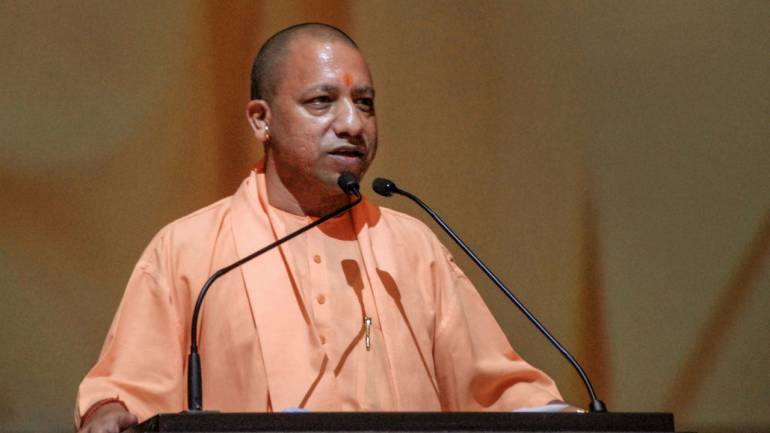It wouldn’t be wrong if we said that lofty ideals and harsh realities often go hand in hand in India. This becomes exceedingly clear if one were to look at a phenomenon like the Mid-day Meal Scheme.
What is the Mid-day Meal Scheme?
Simply put, the Mid-day Meal Scheme is a school meal programme run by the Government of India that is designed to improve the nutritional standards of school going children across the nation.
One of the central aims of the scheme is to be able to improve the nutritional status of children coming from the disadvantaged sections of society especially girls, Dalits and Adivasi children and those from low income/underprivileged sections of the society.
It is believed that such a scheme also helps attract children to the school, improve levels of attendance, reduce dropout rates and promote empowerment through enhanced literacy.
Such a scheme is extremely crucial in a nation where a majority of the population is still denied access to even one square meal per day.
It was this concern that haunted policy makers in India and thus the Mid-day Meal Scheme was enforced under the National Food Security Act of 2013.
The scheme promises that children irrespective of their caste/gender/religion would sit together and consume the same food prepared by the same cook. Apart from fulfilling their nutritional requirements, it was hoped that such a system would end the feelings of discrimination and cultivate brotherhood. It was seen as a possibility for transcending caste and religious barriers.
Lofty Ideals and Harsh Truth
Ironically, the scheme which was envisioned to enable the cultivation of brotherhood and equality amongst children has today become a den of discrimination and unjust social practices. Innumerable instances of Dalit children being asked to sit separately or sit down on the floor and eat instead of being allowed to sit on benches like their upper caste counterparts have surfaced time and again.
A scheme that was intended to universalise access to both food and education has perhaps not been left unaffected by the age-old caste system.
In fact a study conducted by the Indian Institute of Dalit Studies(IIDS) in 2014 revealed how in states like Uttar Pradesh, Bihar, West Bengal, Jharkhand, Odisha, Chhattisgarh and Madhya Pradesh Dalit children were served less food compared to upper caste children.
The study found that such practices had led to widespread disillusionment among both children and parents belonging to the lower castes and many of them experienced reluctance to attend school.
The story of caste prejudice continues, in 2015 a Dalit student was severely beaten in a school in Jodhpur for touching the plates in which food was being served to the upper-caste students. Children belonging to the lower castes in many such schools are asked to bring their own plates, served after all the upper caste children have finished eating and are denied access to water taps that are used by children belonging to the upper-castes. The latest in the row of discriminatory practices in the context of the Mid-day Meal Scheme is being reported from Ballia district of Uttar Pradesh where upper caste children bring their own plates from home in order to avoid eating with the Dalits.
The teachers and the administration had reportedly found no problems with the practice before the video of the school became viral and received widespread criticism.
In Uttar Pradesh’s Rampur too, Muslim students were asked to sit separately and eat food on leaves rather than proper plates which were kept especially for the use of upper-caste children.
In many government schools in Tamil Nadu, students wear different coloured threads on their wrists to indicate their castes and help teachers treat them differently based on it.
It is ironic that children are being assaulted and abused in a space such as the school which held the potential to transform their lives altogether.
It is high time that the government takes notice of the discriminatory and deeply humiliating practices that are taking place during the Mid-day Meals in schools across the length and breadth of India.
It would require an alteration in the way society looks at the dynamics of caste, class, gender and religious differences and an intense community-based intervention is needed to ensure that through education and awareness we can challenge deeply engrained social evils that continue to plague Indian society.
One of the major challenges in this regard would be to acknowledge and listen to those who report and speak against the aberrations that continue taking place in our schools instead of banishing them and punishing them for having exposed the reality.
A journalist in eastern UP has been booked for committing criminal conspiracy after he made a video that showed primary school children being served just rotis and salt as mid-day meals. The reporter exposed the truth of Mirzapur and initially the administration did take steps to look into the matter but it later turned against Jaiswal and alleged that the video had been made to defame the government. On August 31, an FIR was registered against Jaiswal.
It is an extremely paradoxical situation that a journalist who tried to bring the anomaly into light is being punished instead of those in the administration who were allowing such gross injustice to unfold before their eyes.
It is time that the nation wakes up to the archaic, regressive and damaging practices and social customs that continue to plague the socio-political fabric of our country.
It is time that our schools really become places for the emancipation, growth and nurturance of young minds irrespective of their caste or religious affiliations.














